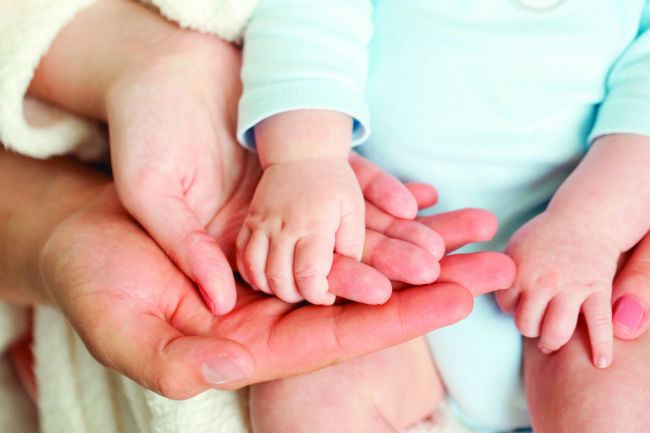‘To be a progressive society, men and women need to share parental responsibility’

LONDON, Jan 16 (Thomson Reuters Foundation) — With more British men wanting to take an active role in raising their children, are workplaces preventing fathers from spending more time at home, asks an inquiry launched on Monday, with men's rights groups calling for a "childcare revolution."
British lawmakers want to know the barriers that prevent men from sharing parental duties, from lack of workplace flexibility to attitudes towards fathers taking paternity leave, and how that affects the gender pay gap.
Flexible working for both men and women — including job shares, and working from home — is key to addressing the gender pay gap, according to the Women and Equalities Committee, which monitors the performance of the government's Equalities Office.
"Many fathers want to take a more active role in caring for their children," committee chair and Conservative member of parliament Maria Miller said in a statement.
"(The committee) is now asking whether fathers are being failed in the workplace. Clearly more needs to be done."
Men's rights groups say the current paternity package of 139.58 pounds ($170) a week was not enough for families to live off, meaning men had little choice but to keep working.
Rigid gender stereotypes were also part of the problem as many fathers are stigmatised for going on parental leave, said Matt O'Connor, founder of rights group Fathers4Justice.
"Dads need to feel that they can take parental leave and be encouraged to do so. We need to ditch this baggage that says 'men go to work, women stay at home.' It's rubbish, change it, it's antiquated," he told the Thomson Reuters Foundation.
"To be a progressive society, men and women need to share parental responsibility. We want to see a childcare revolution," he said.
British parents are the worst in the developed world for sharing childcare duties, with fathers spending 24 minutes with their children for every hour that women do, according to a 2016 report by U.K. charity The Fatherhood Institute.
"(We need) forward-thinking employers who normalise active fatherhood among their employees, actively seeking to help fathers be the kinds of dads they aspire to be," said Adrienne Burgess, joint chief executive of the Fatherhood Institute.
Sweden got the top spot for gender equality among families, the charity's report said.
In the Scandinavian country, fathers are encouraged to take three months of paid parental leave, and the number of working women is the highest in the European Union, the Swedish government says.
The committee has previously called for fathers to be granted three months of well-paid leave as an incentive to help with childcare, and for mothers to be encouraged to return to employment after time out of the labour market.
On average women earn 19.2 per cent less than men in Britain. Despite the government's pledge to end the pay gap within a generation, it has remained more or less the same for the past four years with women over 40 hardest hit, the committee says.
($1 = 0.8222 pounds)




